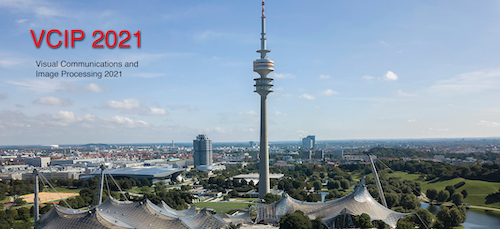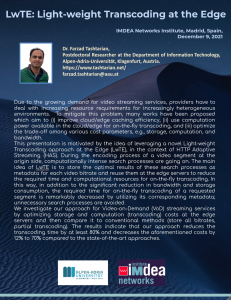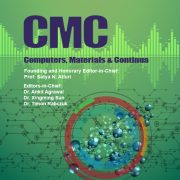Title: FSpot: Fast Multi-Objective Heuristic for Efficient Video Encoding Workloads over AWS EC2 Spot Instance Fleet
Authors: Anatoliy Zabrovskiy, Prateek Agrawal, Vladislav Kashansky, Roland Kersche, Christian Timmerer, and Radu Prodan
Abstract: HTTP Adaptive Streaming (HAS) of video content is becoming an undivided part of the Internet and accounts for most of today’s network traffic. Video compression technology plays a vital role in efficiently utilizing network channels, but encoding videos into multiple representations with selected encoding parameters is a significant challenge. However, video encoding is a computationally intensive and time-consuming operation that requires high-performance resources provided by on-premise infrastructures or public clouds. In turn, the public clouds, such as Amazon elastic compute cloud (EC2), provide hundreds of computing instances optimized for different purposes and clients’ budgets. Thus, there is a need for algorithms and methods for optimized computing instance selection for specific tasks such as video encoding and transcoding operations. Additionally, the encoding speed directly depends on the selected encoding parameters and the complexity characteristics of video content. In this paper, we first benchmarked the video encoding performance of Amazon EC2 spot instances using multiple x264 codec encoding parameters and video sequences of varying complexity. Then, we proposed a novel fast approach to optimize Amazon EC2 spot instances and minimize video encoding costs. Furthermore, we evaluated how the optimized selection of EC2 spot instances can affect the encoding cost. The results show that our approach, on average, can reduce the encoding costs by at least 15.8% and up to 47.8% when compared to a random selection of EC2 spot instances.
Keywords: EC2 Spot instance, Encoding time prediction; adaptive streaming; video transcoding; Clustering; HTTP adaptive streaming; MPEG-DASH; Cloud computing; optimization; Pareto front.














